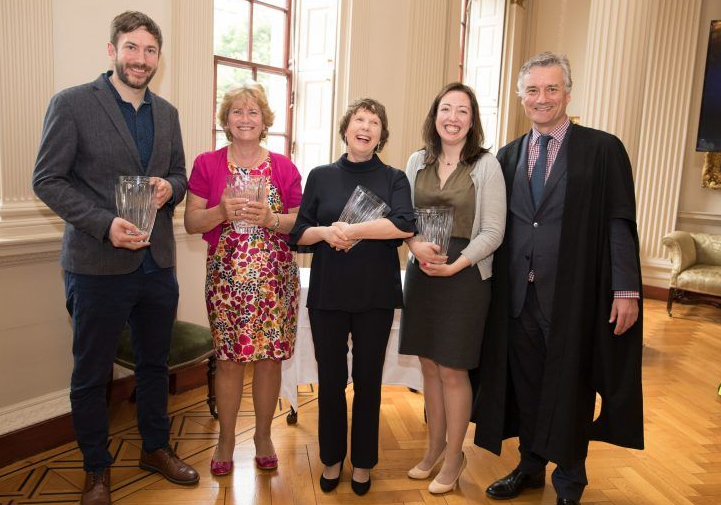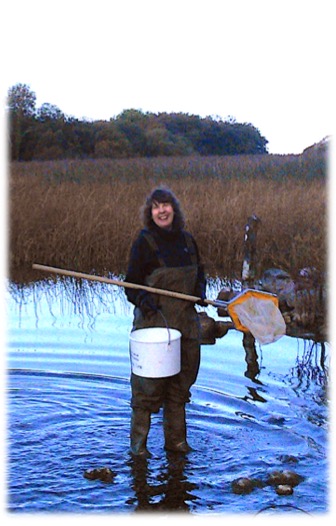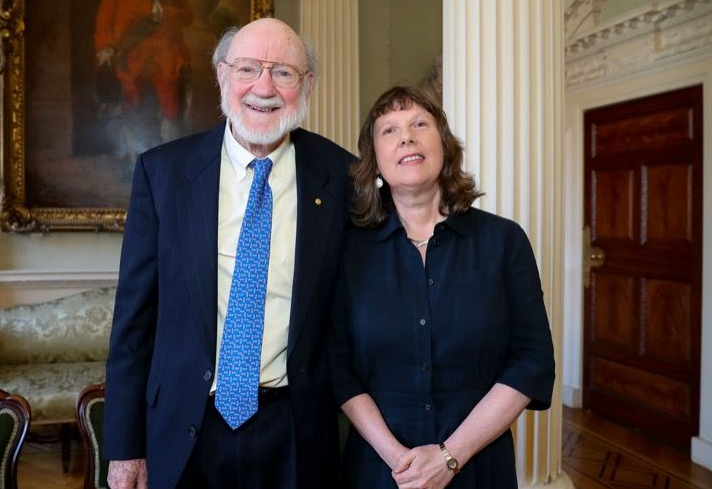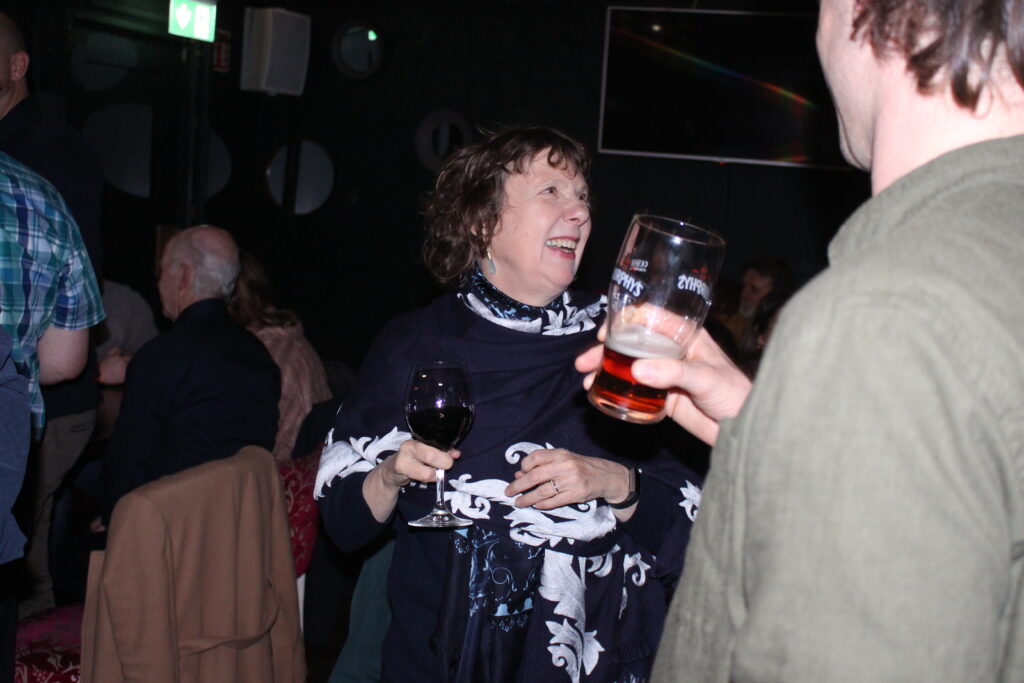As we welcome in the New Year, we want to take the time to bid farewell to Prof. Celia Holland who retired in October 2022 from the Zoology Department. I believe I speak for everyone in Zoology and Trinity who’ve had the great pleasure of meeting Celia, that she will be a huge loss to the department. She has acted as Head of School, Head of Discipline, Director of Research, and Chair of the School of Natural Sciences Athena Swan Self-Assessment Team to name a few.
Celia started her teaching journey in the Zoology Department in 1985, following an exuberating Post-Doc in Panama, where her passion for the epidemiology of globally significant but neglected helminths, such as Ascaris, developed. Although she was one of the “new kids on the block” and one of very few females in a male dominated department, she was quick to make her mark and let the world know her presence. Celia was quick to fix the muddled teaching schedule, by rightly advocating for herself to be lecturer of parasitology and pre-med, which was previously taught by a limnologist. Not only did this strengthen the parasitology course, it was also the start of a long and fruitful relationship with the medical department in TCD, starting Celia’s so called “double life”. Her work on an astonishing diversity of parasites and their hosts crossing multiple disciplines, has improved human health and increased our understanding of parasites and their effects.
Anyone who has had the great pleasure to interact or work with Celia will know her as a calm, reassuring presence. Her delightful demeanor and passion could draw you into the world of parasites, making you question whether you should continue to eat pork or spaghetti, while simultaneously spurring up a profound desire to delve deeper into parasitology, converting (or even infecting) many students. This impact, her vast knowledge and expertise, along with her belief that “you are only as good as your last lecture”, unsurprisingly granted Celia with a Lifetime Achievement Award at the Provost’s Teaching Award 2018 – 2019.

Celia has not only had a huge impact on the college community and the people she met, but has also significantly impacted the global community with her research, which took place around the globe. Celia has worked on a multitude of parasites and their hosts over the years. She has studied parasites affecting Irish school children, raising awareness of the symptoms and impacts of toxocaral eye disease, a treatable and preventable disease caused by Toxocara. Toxocariasis, a zoonotic infection, has huge impacts on human health around the globe. She also highlighted the importance of targeting Trichuris trichiura, a whipworm that can infect over 90% of children in the tropics and subtropics, causing major impacts on health and quality of life. Celia demonstrated the importance of treating children and girls in particular, as adolescent girls have higher iron requirements due to menstruation, pregnancy & breast feeding. Most notably, Celia worked on one of the most prevalent and simultaneously under-researched Neglected Tropical Diseases Ascaris, a helminth parasite of humans and animals. She worked on both Ascaris lumbricoides (human parasite) and Ascaris suum (pig parasite). Ascaris lumbricoides has been described as the ultimate Neglected Tropical Disease, both because of its impact on child health and the general lack of awareness around it. This work culminated when Celia published “Ascaris: the neglected parasite” in 2014. The book “provides a blueprint of how a single parasite can stimulate interest in basic biology, clinical science, veterinary science, public health and epidemiology”. Her dedication to understanding and investigating parasites and their impacts, has led to her being an Invited Expert on the WHO Advisory Panel on Parasitic Diseases and a member of the WHO Guideline Development Group (GDG) – deworming, in 2016, a Member of the WHO Foodborne Disease Burden Epidemiology Expert Elicitation in 2014 and an Editor of the Cambridge Journal Parasitology 2011-2019. Celia has a remarkable repertoire of awards, recognitions and representations, befitting a woman of her caliber and dedication.
There are very few retiring researchers who get a glowing endorsement of their contribution to this world from a Nobel Laureate, however, Celia is no ordinary person. Professor William C. Campbell writes:
“I write to congratulate you and to wish you all the best on your retirement. You have had an outstanding career. Your classroom listeners, your research students, your academic colleagues and your research collaborators have benefited enormously from your knowledge of zoology, and especially from your expertise and insights in the field of parasitology. Indeed the broader field of epidemiology has benefited from your pioneering field-work… Countless students and other readers of your papers and books have similarly been beneficiaries. Your ability to assess, extract and organize mountains of facts, and to synthesize coherent conclusions, has been extraordinary. (When you were in AmericaI I was fortunate to hear one of your lectures on ascariasis.) Your magnificent contribution to science will endure. Again, congratulations — and best wishes for a rewarding and happy retirement.”
Once again, we would like to wish Celia all the very best in her retirement as she travels the world, sharing her light to everyone fortunate enough to meet her. I also want to thank all her colleagues and friends for their wonderful stories during Celia’s retirement party and contributions to this post.



